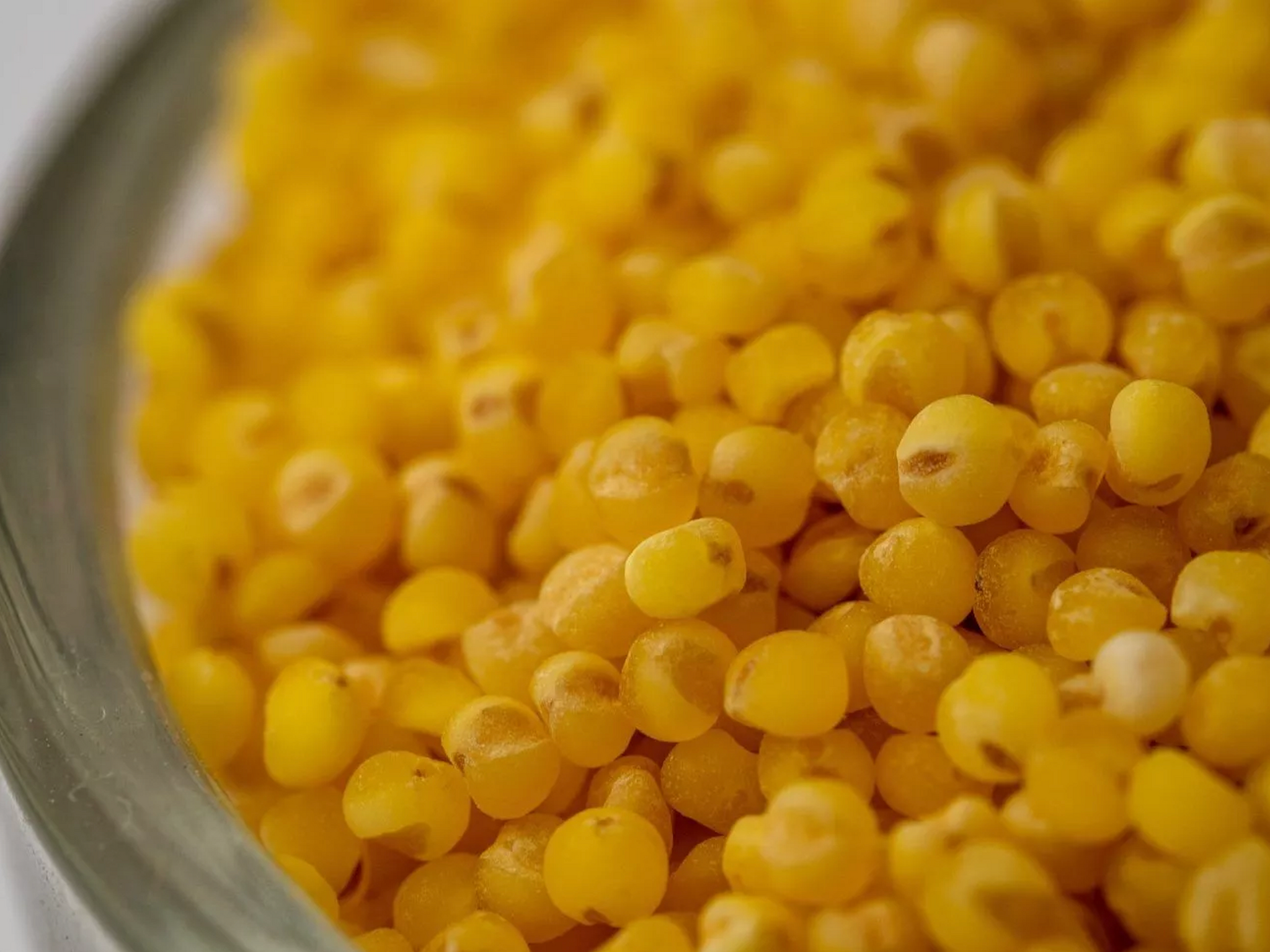Have you heard of millet in dog food? It is starting to become a popular ingredient added to commercial dog food. But despite its popularity, there’s still a lot of confusion and misinformation regarding millet.
One of the most frequently asked questions is whether millet is safe for dogs or not. In this article, we’ll try to clear the confusion around millet and discuss the various health benefits they offer for our furry friends.
What is Millet?
Millet is an ancient cereal grain grown for fodder and human food consumption. It’s a major food source in arid and semiarid regions of the world. It has been noted that humans have been consuming millet for about 7,000 years and it's a part of many traditional dishes in India, Vietnam, and China.
Today, millet has become especially popular amongst people who suffer from gluten-related disorders like coeliac disease as it’s a gluten-free cereal that can replace wheat. It’s also commonly used to feed birds and animals.
Can Dogs Eat Millet? 6 Health Benefits
Yes, dogs can eat millet. In fact, it’s a gluten-free grain that contains protein, fiber, and many more essential nutrients that can be beneficial for your dog’s health.
Let’s discuss some of the amazing health benefits of feeding millet to your dog.
1. Improves Digestive Health
Millet is rich in both soluble and insoluble fiber - both of which play a vital role in maintaining your dog’s health.
Soluble fibers are digestible and they get fermented into fatty acids that prevent the overgrowth of harmful bacteria and provide energy to the cells lining the colon. These acids are also responsible for the metabolism of various nutrients including carbs and fat.
Insoluble fibers on the other hand are indigestible fibers that add bulk to the stool and help food pass easily through the digestive tract. It can encourage bowel regularity and prevent digestive issues like diarrhea and constipation.
2. Can Control Blood Sugar
Adding millet to your dog's diet might even help control their blood sugar levels. Firstly millet contains complex carbohydrates that take longer to digest when compared to other grains like wheat. This ensures there’s no sudden spike in blood sugar levels after eating.
Secondly, the high fiber content of millet slows down the entrance of glucose into the bloodstream and can help control blood sugar levels in dogs.
3. Rich in Antioxidants
Millet contains a wide range of phenolic compounds which are natural antioxidants. These antioxidants fight against the oxidation of free radical damage and can protect the dog’s body from various health issues including respiratory diseases, skin allergies, arthritis and joint problems, autoimmune disorders, and heart diseases.

4. Great Source of Vitamin B
Millet offers the following variety of B vitamins that are needed for various enzyme functions in your dog’s body.
Niacin (B3) - It helps convert fats and carbohydrates into energy, boosts cognitive function, and supports hormone synthesis in dogs.Folate (B9) - It supports cell division, tissue growth, and normal blood formation.

5. Provides Essential Minerals
Apart from vitamins, millet is also filled with some essential minerals. It’s particularly rich in iron which is directly involved in the formation of red blood cells and hemoglobin, phosphorus which supports healthy kidney function, and magnesium which supports muscle health in dogs.
Millet is also a rich source of potassium which is required for neural function, muscle growth, and bone health. It also allows the body to digest and absorb nutrients faster.
6. Gluten-Free Grain
Millet is a gluten-free grain, making it a perfect choice for dogs who suffer from gluten intolerance, wheat allergy, or celiac disease.
Even if the dog isn’t suffering from a gluten allergy, many pet owners choose to provide gluten-free diets to their pets to treat digestive issues, boost energy levels, improve the quality of their skin and coat, or manage weight. If you were looking for a gluten-free wheat alternative for your dog, then millet is a great choice.
How to Feed Millet to a Dog?
Due to its gluten-free nature and wide-ranging health benefits, millet is becoming a popular choice in commercial dog foods. If you want to know whether millet is in your dog food you can read the ingredient list usually found on the back of the dog food bag.
If millet is not in the dog food you buy, there are plenty of options available to feed millet as part of your dog's diet. It's important to note that you should always feed cooked millet to your dog. Uncooked, raw millet grains are hard to chew and digest. They can also lead to an upset stomach and cause vomiting and diarrhea.
When buying dry millet grains you can easily cook them like you would quinoa. Start with washing half a cup of millet. Then dry roast them in a pan until they turn golden brown. Add one cup of water and let it cook until the water is absorbed. You’ll have soft and fluffy millet ready to eat in no time. But make sure you let it cool down before feeding it to your dog.
You can either mix 2-3 tablespoons of cooked millet with your dog's daily meals. Or you can mix it in with some cooked veggies or an egg to offer as a treat in between meals.
Many pet parents also prefer making millet porridge by adding extra fruits and vegetables. If you want to go the extra mile, you can bake delicious treats using millet flour.
There are plenty of dog-friendly recipes made using millet that you can find with a simple online search.

The Right Portion Size
Moderation is the key when feeding millet to your dog. Most pet owners are already feeding a healthy and well-balanced diet to their dogs. That means your dog is already getting all the nutrients they require for proper growth. Thus millet should be served as a supplement to provide additional nutrients.
You can consult with a veterinarian to determine the exact amount of millet to feed your dog based on their nutritional requirements and health conditions.
Precautions While Feeding Millet to a Dog
Millet is a healthy and gluten-free grain that’s safe to add to your dog’s diet. But it’s important that you feed it in moderation as overindulgence can lead to health problems and nutritional imbalance.
If you’re feeding your dog millet for the first time, you should also consider millet allergies. Although it’s rare, your dog could still get an allergic reaction to this grain.
It’s best to start feeding them millet in small amounts and monitor their reaction for the first 24-48 hours. Look out for any of the following signs of an allergic reaction:
- Upset stomach, vomiting, or diarrhea
- Constant itching and licking
- Red or irritated eyes
- Runny nose or continuous sneezing
- Swelling on the face, ears, lips, or eyelids
- Red or inflamed skin
- Itchy ears
If you notice any of these signs of an allergic reaction, contact a veterinarian immediately.

Summing Up
Millet is a healthy gluten-free grain that can provide many health benefits to your dog. You can add it as a supplement to their daily well-balanced meal or offer it as a treat. But monitor the portion sizes as too much millet can lead to an upset stomach and cause nutritional imbalance.
If you have any further doubts, you can consult with your veterinarian before adding millet to your dog’s diet.
FAQs
Let’s answer some frequently asked questions about feeding millet to a dog.
1. Can a dog eat spray millet?
Spray millet is made for birds and it’s best to avoid feeding them to your dog.
2. Can a dog eat millet flour?
Yes, a dog can eat millet flour in moderation when properly cooked. You can easily bake delicious treats using millet flour or make tiny pancakes and serve them as an occasional treat.
3. Can a dog eat cooked millet?
Yes, a dog can eat cooked millet. You can make it just like you would make quinoa or make porridge using millet.
But always add cooked millet as a topper to your dog’s healthy and well-balanced meal. You shouldn't replace their daily meals with just cooked millet.
4. Can a dog eat millet porridge?
Yes, dogs can eat millet porridge. You can add different fruits or vegetables to the recipe to make it more nutritious and delicious.
5. Can a puppy eat millet?
Yes, a puppy can eat millet in moderation. It’ll provide them with many essential vitamins and minerals, dietary fibers, and antioxidants to support their proper growth and development.
You can talk to a veterinarian to decide how much millet you should feed your puppy.
6. Can a dog eat millet when suffering from diarrhea?
Yes, dogs can eat small amounts of millet when they’re suffering from diarrhea. You can cook millet and mix it in with some chicken before feeding it to your dog. Remember that this isn’t a cure but it can help settle their tummy while providing some essential nutrients.
Furthermore, if your dog has any health issues, you should consult with your veterinarian before feeding them millet.
Join Our Pack
Sign up for our monthly newsletter focused on dog digestion health, cute pup stories, and the latest scoop from Nextrition.
Source:
https://www.rover.com/blog/can-dog-eat-millet
https://www.qualitydogresources.com/can-dogs-eat-millet





